NDFU union farmer

MARCH 2023 • ndfu.org


MARCH 2023 • ndfu.org
Zach Johnson ‘The Millennial Farmer’ keynotes Evolution Ag Summit with his message of improving ag outreach
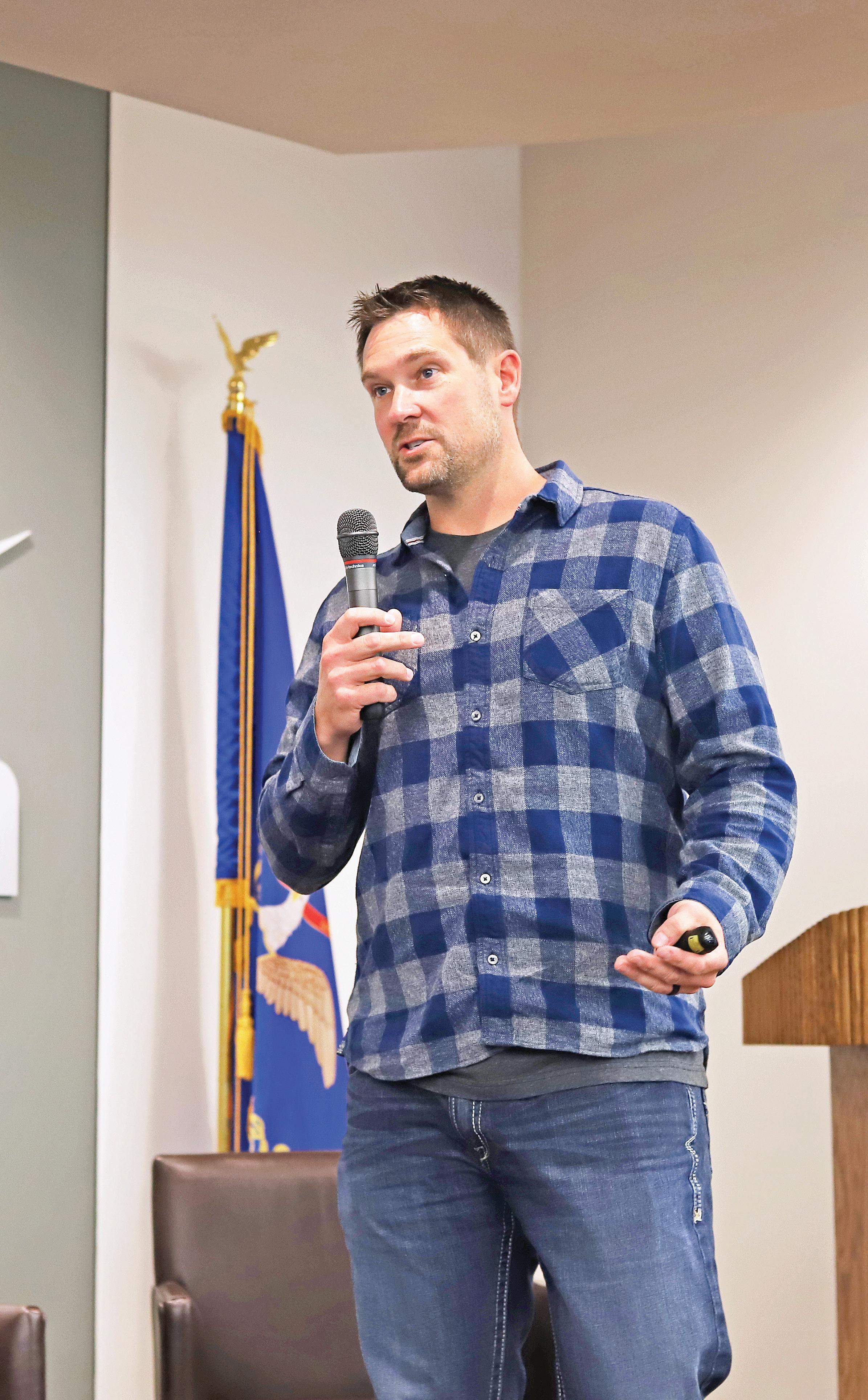



I grew up in Finley. My dad Ron Lerol started his 42-year career with Farmers Union Insurance as an agent in 1970. I graduated high school in 1982, and then from UND in 1986 with a degree in aviation management. After college, I worked as an aircraft dispatcher in St Louis. I met my wife Sarah at a wedding in California in 1994, and after several years living in Missouri, we moved to her home in Massachusetts where we lived for 13 years. My dad retired in 2012, and I had the opportunity to move back to Finley and start my career in the same office and agency where he started his career. I am proud to continue serving the community I grew up in.
I enjoy being a Farmers Union Insurance agent because I get to help people protect the things that are important to them. Living in a small town, you are connected to the people that you serve. I enjoy working with these families as they grow and change to ensure they continue to have the protection they need and want.

I am a member of the Masonic Lodge in Cooperstown, and I serve on the board
of the Finley Economic Development Corporation. Our agency supports many community groups and organizations through donations every year, including the local 4-H Club, Dollars For Scholars, the Shriners and anyone looking for support for their school activities and projects.
Sarah and I enjoy spending time with family and friends at our cabin on Red Willow Lake near Binford where our family has spent summers since 1976. We also love to travel and feel fortunate to have been able to visit many interesting and beautiful places over the years.

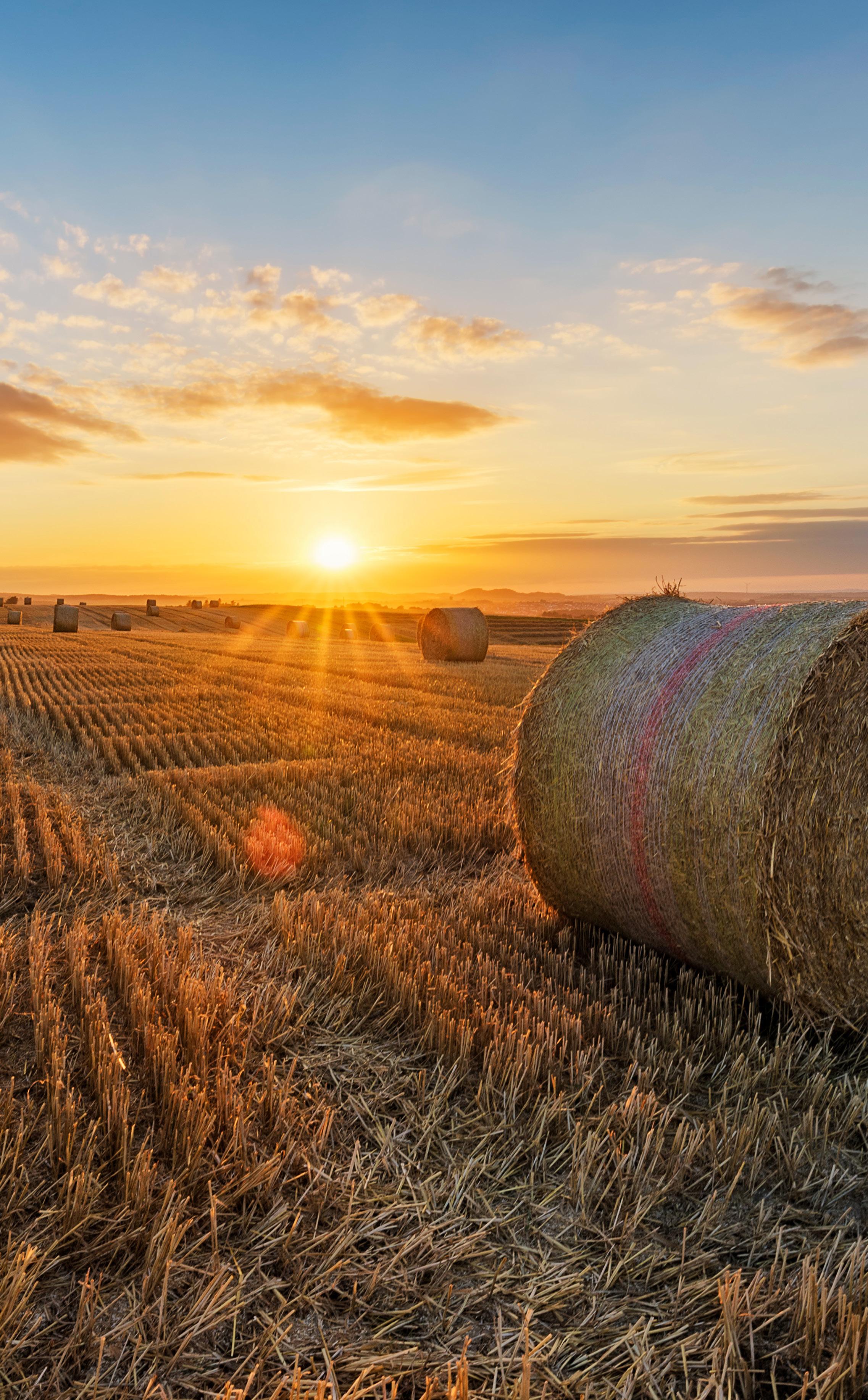
On Feb. 8, North Dakota Farmers Union’s Board of Governors voted to pursue an amendment to House Bill No. 1371, the bill that would weaken the state’s corporate farming law. Nine days later, the House Agriculture Committee approved an amendment consistent with NDFU’s proposal. The amendment addresses each of our members’ most significant concerns with the bill. This article provides a summary of the amendment.
In its original form, HB 1371 would have completely exempted swine, dairy, poultry and cattle feeding operations from North Dakota’s corporate farming law, as long as they owned 160 acres or less. One of NDFU’s biggest concerns with the original bill was that it did not require these new corporations to be controlled by farmers or ranchers.
The recently approved amendment would guarantee farmer and rancher control of new livestock feeding operations. As amended, HB 1371 would authorize two new types of entities: authorized livestock farm (ALF) corporations and authorized livestock farm limited liability companies. Farmer and rancher control of these entities is protected through the ownership and governance requirements for ALF entities.
The amendment requires that family farmers and ranchers have a controlling interest in ALF corporations or ALF LLCs. At least 75 percent of the interest in an ALF corporation and 51 percent of the interest in an ALF LLC must be owned by individual farmers or ranchers, family farm corporations or family farm LLCs. The amended bill also requires that the officers and directors or governors and managers of these new entities are actively engaged in the operation.
HB 1371 originally established a 160-acre limit for any new animal feeding operation. However, NDFU was concerned that acreage limitation could be easily circumvented by allowing the same shareholders to establish multiple corporations.

As amended, HB 1371 maintains the 160acre limit for each operation and prevents the unlimited “stacking” of entities. The bill prohibits a shareholder in an ALF entity from having an interest in other ALF entities that together own more than 640 acres.
The amendment also clarifies that any land owned by an ALF entity cannot be used for crop production or livestock grazing. That restriction creates an economic disincentive to prevent ALF entities from owning more land than required for swine, poultry or dairy barns, or cattle feedlots.
As amended, HB 1371 limits ALF entities to 10 shareholders. This provides ample flexibility for multiple family farms to incorporate together to establish an animal feeding operation together. But the shareholder limit mitigates the potential for entities to be controlled by passive investors.
The amendment also clarifies the corporate farming law’s prohibition on foreign ownership. The amendment prohibits foreign individuals or companies, including subsidiaries of foreign companies, from owning an interest in ALF entities.
Under current law, family farm corporations and LLCs are required to submit an initial report
The amendment authorizes the establishment of new authorized livestock farm corporations or authorized livestock farm limited liability companies. The amendment requires that these new entities:
• Are controlled by family farmers or ranchers.
• Are subject to a 160-acre limit. Importantly, the bill also limits each shareholder to 640 acres of total investment in ALF entities.
• Cannot be owned by investors other than U.S. citizens, permanent resident aliens, or companies organized in the U.S.
• Are subject to the same reporting and enforcement standards in the existing law.
and annual report to ensure they are complying with the law. The amendment to HB 1371 ensures ALF corporations and LLCs are held to that same standard.
These reporting requirements consist of the names of shareholders or members, the names of officers and directors, the acreage owned by the entity and more. These reporting requirements are critical to ensuring that any farming or ranching corporations or LLCs, including ALF entities, are complying with the law.
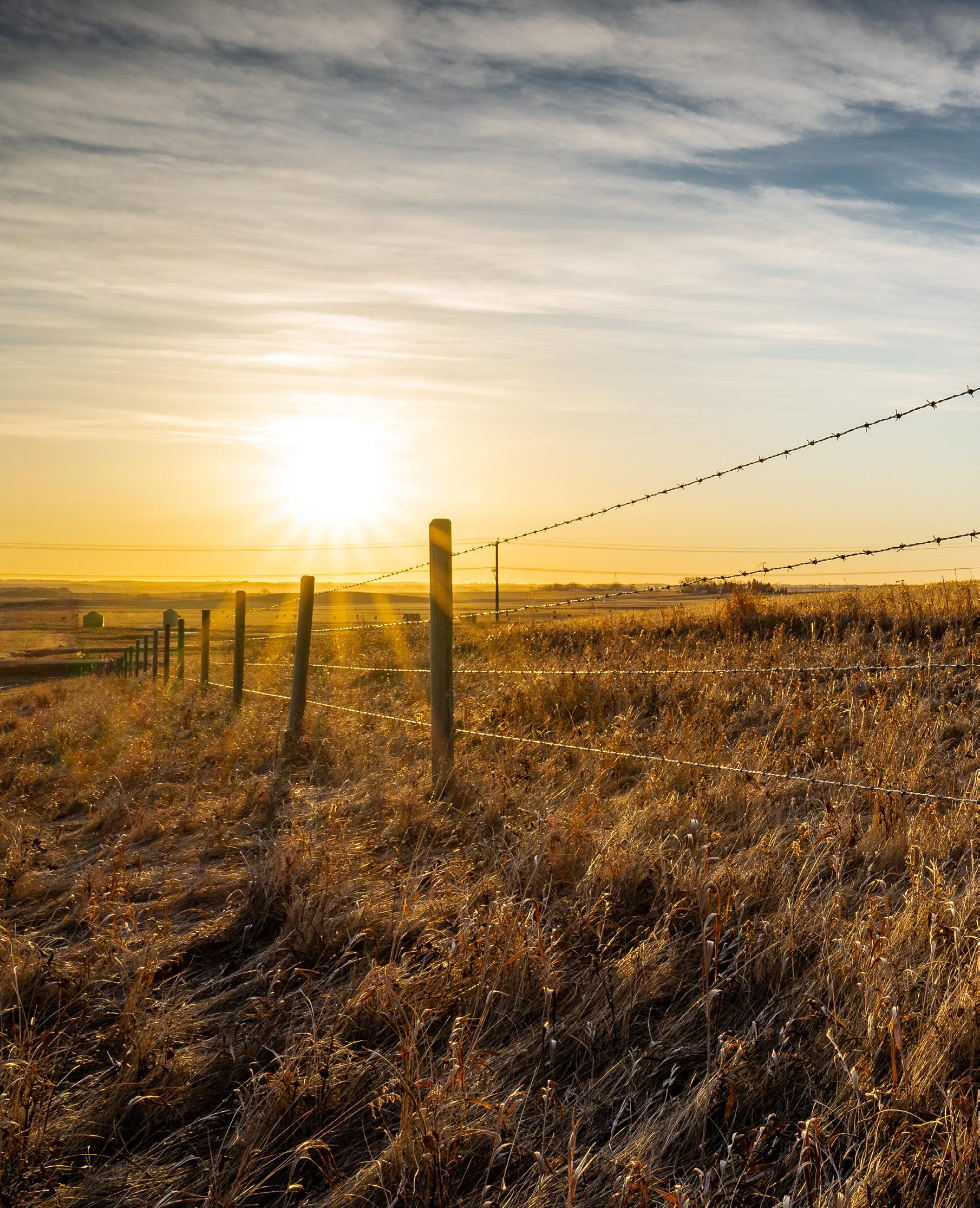
As amended, HB 1371 would allow unrelated farmers and ranchers to incorporate together to establish animal feeding operations. The bill would allow those operations to access outside investment. But the amendment ensures that family farmers and ranchers have control of new animal feeding operations. While NDFU would prefer to leave the state’s corporate farming law as it is, the amended bill ensures family farmers and ranchers remain the central focus of livestock development in North Dakota.

(Completed Grades 3-6)
JAMES RIVER
June 12-15
June 27-30
July 5-8
July 17-20
July 24-27
HEART BUTTE
June 19-22
June 26-29
July 5-8
July 18-21
July 25-28
(Completed Grades 7-12)
June 13-17 Heart Butte ( Grades 7-12)
June 20-24 Jamestown ( Grades 7-9)
July 10-14 Jamestown ( Grades 7-12)
July 11-15 Heart Butte ( Grades 7-9)
July 31-Aug 4 Jamestown ( Grades 10-12)
Aug 1-5 Heart Butte ( Grades 10-12)
7th & 8th Grade Lock-In : April 29-30 (Jamestown)
All-States Leadership Camp : June 25-30 (Montana)
Third Year Award Tour : July 17-20 (Twin Cities)
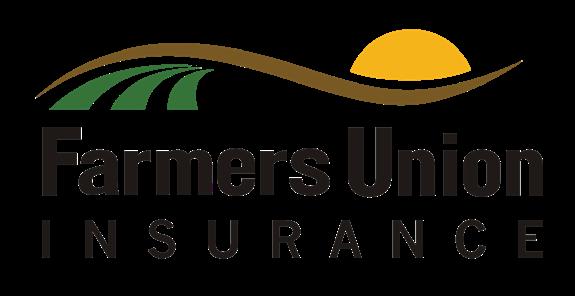
Campers earn a limited edition T-shirt and Cenex gift card for referring friends to camp as well as award trips for youth program participation. Restrictions apply, visit ndfu.org for details.
Approximately 25-30 individuals are hired and trained each year by NDFU as camp counselors, kitchen staff and facility maintenance workers. Applicants must complete an application, interview and pass the background check process.
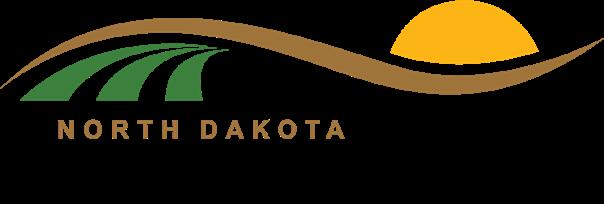

Register by May 15 and receive a discount on your registration fee!
In reflecting on food production and our supply channels, did we learn anything after the pandemic? Did we expose new challenges? Did we create new opportunities? Is our food supply chain functioning, as we want, or did we expose the fallacies in our system? These are questions Farmers Union is asking, as they are very relevant to family farmers and ranchers.
Actually, these questions are what everyone should be asking. If the grocery shelves in the wealthiest country in the world with the best food production system in the world can be empty, if the consumer is paying too much and the farmer/rancher is losing money and the whole system between the farm and the retail outlet is making record profits, we have a problem.
So, what is causing this issue and why did it happen? I believe it starts with the lack of enforcement of our antitrust laws.
We have allowed most of the industries that supply and buy from farmers and ranchers (and deliver to consumers) to own the whole food chain – fully integrated – between the consumer and the farmer. We have allowed this concentration over time and given market power to a few companies, creating opportunities for monopolistic practices.

This concentration issue is in most industries that deal in food production from seed, fertilizer, transportation, animal processing, etc. When these systems failed, there was not the ability to be able to step up and fill the gap. Farmers and ranchers sat with excess product at the

farm, keeping prices lower at the farm gate, and consumers could not find food on the shelves, causing shortages and high costs.
The fact that we have allowed many industries to consolidate to a level where they can have market manipulation impact and have influence on available supply if an unexpected event occurs, is simply a lack of thought and vision. It is why Farmers Union supports a diverse system of family farms and ranches and a diverse number of farm product suppliers and purchasers. This allows the marketing system to remain open and free.
Even after we have experienced what happens with consolidation and understanding that a just-in-time delivery system for food has serious limitations, there is a movement to allow the same companies that caused the shortages and high prices to own farmland and get into production agriculture. This step to further integrate the food supply chain will only create more challenges and be even a larger disaster if an unexpected event happens.
It is time to step up our antitrust law enforcement. The U.S. has a great food production system built by family farms and ranches. Let’s not further duplicate the errors of the past that caused the grocery store shelves to empty. And let’s not lack the vision and experiences that show us if we open the door to further concentration, we will only increase the odds of food production shortages, logistic issues with supplies and pricing challenges in the future.

Utilizing both North Dakota Farmers Union buses, nearly 100 farmers and ranchers descended on Bismarck for the Legislative Drive-in on Feb. 8-9.

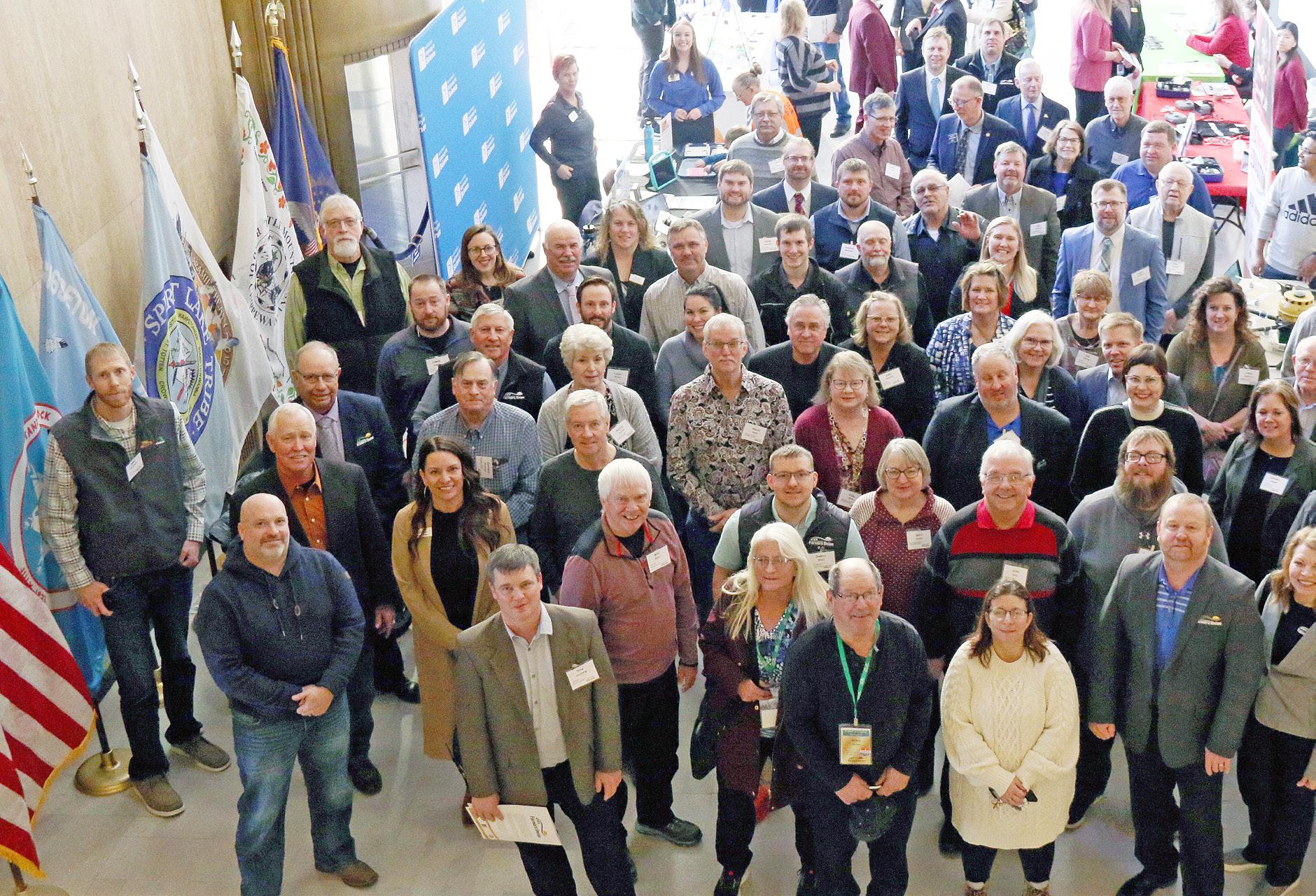
As the newly elected president of LaMoure County Farmers Union, Mike Schlosser of Edgeley said he wanted to get up to speed on the latest happenings that affect agriculture.
“A chance to come together to find out what we need to know in our county,” he said. “We got to visit with some legislators and sit in on a session, so that’s always important. Just good to put our presence out there. It’s kind of instrumental in being a Farmers Union member.”
The two-day session started with a meeting of NDFU’s Board of Governors, which is made up of county presidents and is the governing body for the organization. Members later received training on how to talk with legislators about issues that affect them. A social was held at the Radisson that evening with numerous legislators showing up to visit with NDFU members.
Dalton Wiest, a 22-year-old NDFU member, farms near Wyndmere. As a young farmer, he was happy to make connections and lend his
voice to a bigger effort to improve the life of producers in North Dakota.
“As a farmer, we don’t have much we can do by ourselves,” he said. “When we band together like this, you can change policy and do a lot for your county and your state.”
On Day 2, NDFU members took in hearings before watching sessions in both the House of Representatives and the Senate.




EDITOR’S NOTE: On Jan. 26, North Dakota Farmers Union (NDFU) members testified on HB 1371 to the House Ag Committee. The bill allows a livestock exemption to the state’s corporate farming law. Printed here is NDFU President Mark Watne’s testimony prior to the committee accepting NDFU’s amendment.
Chairman (Paul) Thomas and members of the committee,
Thank you for the opportunity to testify on House Bill No. 1371. My name is Mark Watne, and I serve as the president of North Dakota Farmers Union. NDFU opposes HB 1371.
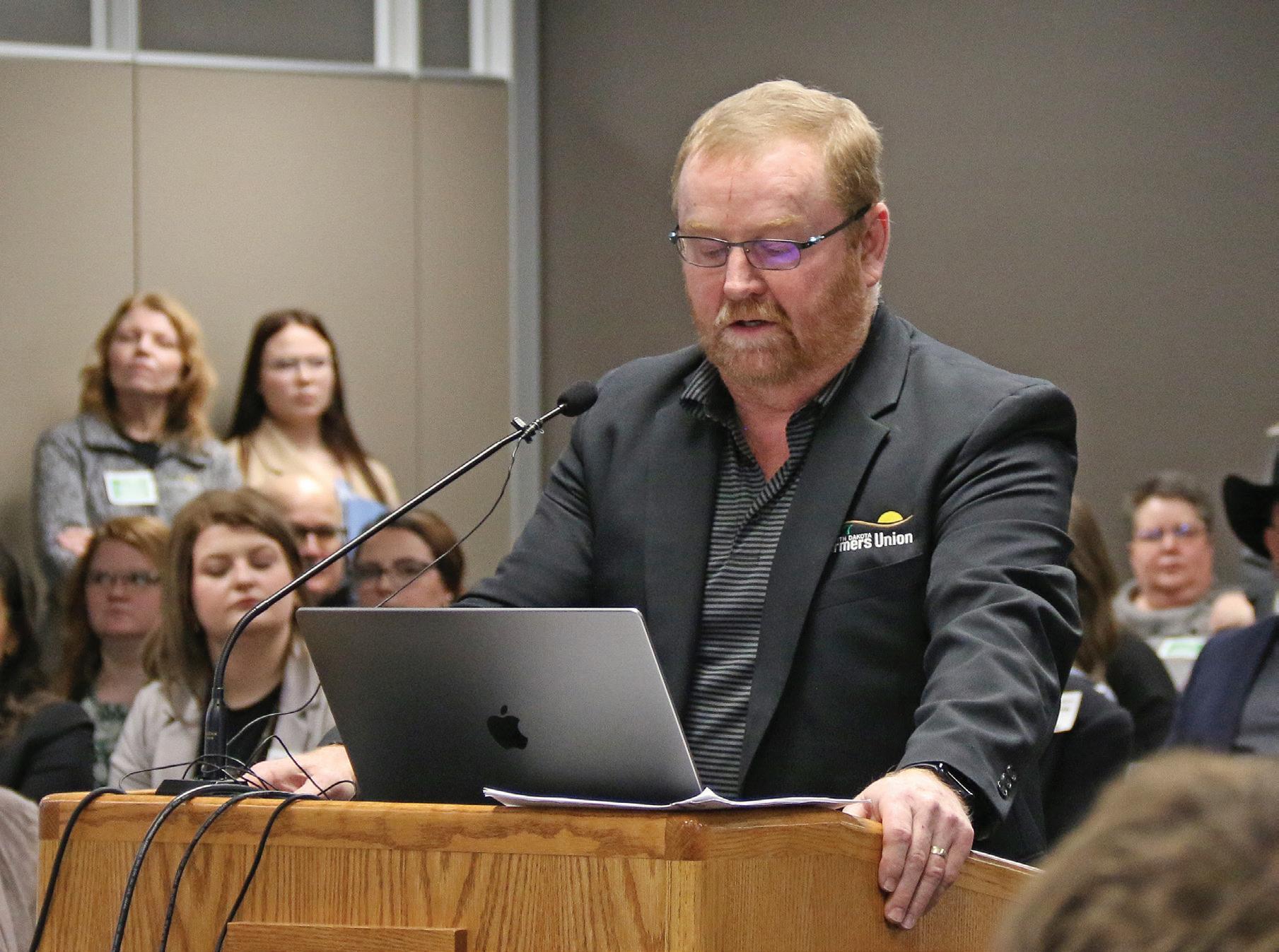
NDFU firmly believes that food production should be in the hands of family farmers and ranchers. We believe family farmers and ranchers are the foundation of our rural communities, our economy, and our state’s social fabric. Because of that, NDFU has always advocated for policies that ensure ownership, operation and management of farms and ranches is held by family farmers
and ranchers.
In 2015 the legislature passed SB 2351, a bill to exempt swine and dairy farms from the corporate farming law. Shortly after that bill passed, NDFU’s Board of Governors chose to refer that legislation. Ultimately, North Dakota voters rejected the exemptions with a 76% “No” vote. This bill provides those same types of exemptions for more sectors without any monitoring and reporting requirements. I struggle to understand why our members and voters (or citizens) would react to this bill any differently than they did six years ago.
We believe this bill goes much further than what many of its supporters have argued for. Some have said we need to change the law to allow unrelated farmers to partner with each other. The current law already allows that. Unrelated farmers can already form general partnerships, limited partnerships, LLPs, LLLPs, and cooperatives. Our current law even allows multiple family corporations to come together
NDFU President Mark Watne testifies in opposition to HB 1371 on Jan. 26 at the state capitol in Bismarck. The bill would exempt large, corporate livestock operations from the state’s corporate farming law.through any partnership structure.
Other supporters have argued we need to allow farmers and ranchers to access investment from outside corporations or individuals. Our current law already allows non-farming individuals to invest in farms or ranches through any partnership structure. It also allows outside entities to invest in farming or ranching cooperatives.
This bill allows outright ownership of cattle feedlots and hog, dairy and poultry farms by any corporation. The bill does not require that farmers or ranchers are shareholders in that corporation. It does not limit the number of shareholders involved. This bill would allow meatpackers to own cattle feedlots and hog barns.
HB 1371 establishes a 160-acre limit for these new exempt operations. However, it does nothing to prevent a corporation from using multiple subsidiaries to buy multiple quarters of land. That is made more problematic by the bill’s lack of any minimum animal number required to be exempt. Enforcing the 160-acre limit itself may also prove challenging. HB 1371 does not include any monitoring or reporting requirements. These operations will not be subject to the same transparency requirements family corporations are subject to, including
reporting land ownership.
NDFU is also concerned by the unintended consequences of changing the definition of farm or ranch. Some Bank of North Dakota programs, like Ag PACE, rely on the definition of farming and ranching in the current corporate farming law to determine eligibility. By removing animal feeding operations from that definition, this bill could harm genuine family operations, who could be locked out of those programs. Whether non-family corporations should be eligible for BND programs is a complex issue, in and of itself. It is one that should be discussed more deeply.

Removing animal feeding operations from the definition of farming or ranching also invites new challenges to existing policies that support family farmers or ranchers. If the agriculture committee says that an animal feeding operation is not a farm or ranch, how can we argue that these operations should receive agricultural property tax benefits?
NDFU appreciates our collaboration with you and other agricultural groups to support livestock development in our state. Corporate farming is a complex issue. We would fully support an interim study to allow a more thoughtful, deliberative discussion. However, we are firmly opposed to HB 1371, as it currently stands. Thank you.



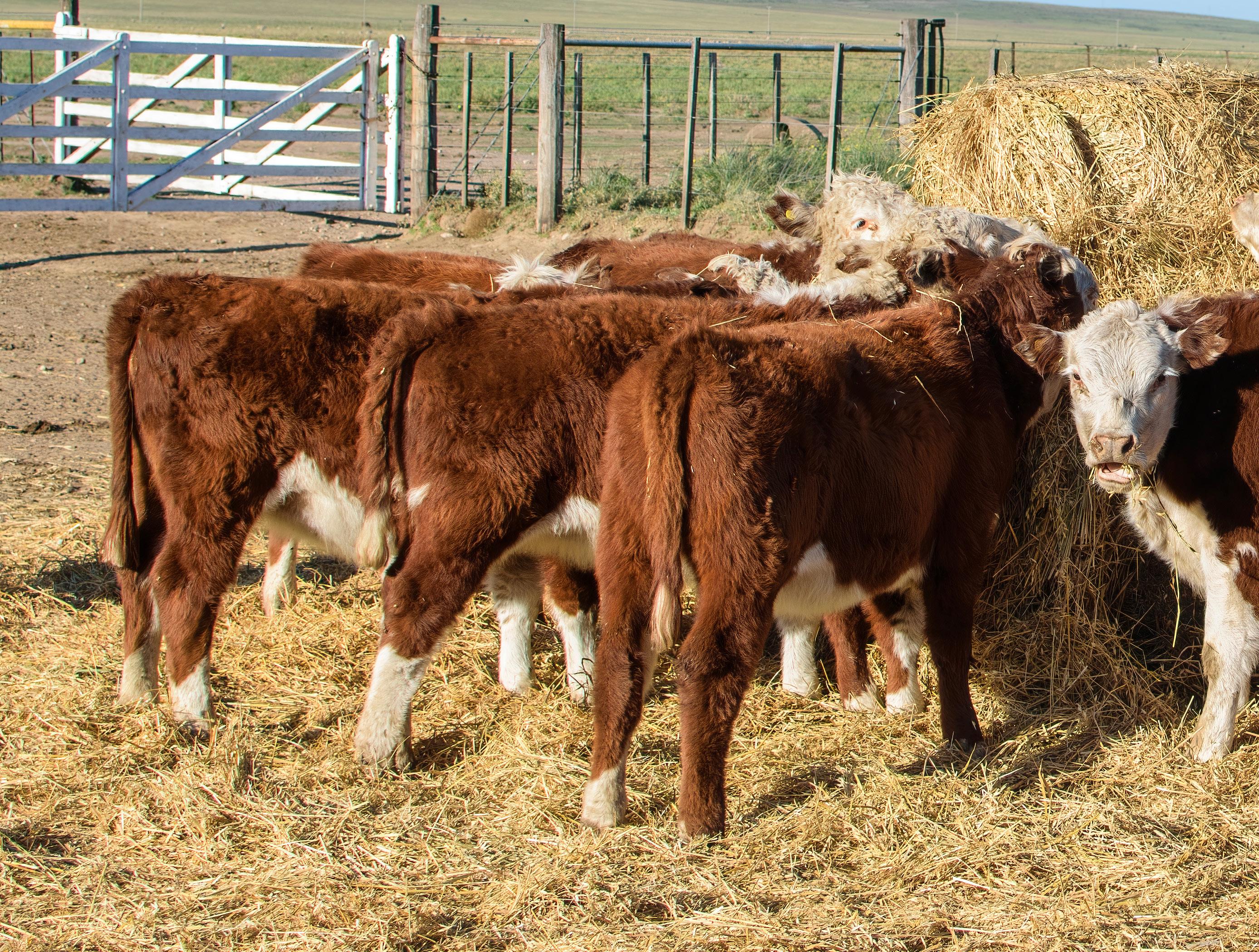
Livestock Risk Protection insurance (LRP) is a price insurance policy developed as a price risk management tool that protects livestock producers from declining prices. LRP is designed to protect livestock producers by establishing a floor selling price for livestock. LRP insurance pays a producer if the regional/ national cash price index falls below a selected coverage price.
LRP provides coverage for feeder cattle, fed cattle, unborn calves, and swine. Producers have flexibility in timing of purchase, length of coverage, number of head covered, targeted weight of livestock at the end of coverage, and coverage level. LRP coverage levels range from 70% to 100%. The insurance period ranges from 13 to 52 weeks to allow producers to match their policy to the time they normally market livestock. Producers may buy LRP insurance throughout the year from Risk Management Agency (RMA) approved livestock insurance agents. However, cattle sales are only available Monday-Friday with sales period beginning around 4 p.m. Central time and ending at 9 a.m. Central time the following morning.
LRP coverage is calculated based on average
prices from the Chicago Mercantile Exchange. If the actual ending value is below the coverage price, producers will be paid an indemnity for the difference between the two.
LRP has become much more affordable recently, with increased subsidies and lower premiums. As shown in the example below, the LRP premium for coverage on the same animal has dropped significantly since 2020. While the amount of guaranteed coverage has increased due to higher markets, the premium is less. For a 26-week term, the premium dropped by $30, and for the 39-week term, the premium dropped by $38.
26-week term
2020 — guarantee per head = $1,008 and producer cost = $64
2023 — guarantee per head = $1,591 and producer cost = $34
39-week term
2020 – guarantee per head = $1,008 and producer cost = $86
2023 – guarantee per head = $1,657 and producer cost = $48
Improvements and Changes for 2023
• Increase head limits:
*Fed Cattle: 12,000 head per endorsement and 25,000 head per crop year.
*Feeder Cattle: 12,000 head per endorsement and 25,000 head per crop year.
*Swine: 70,000 head per endorsement and 750,000 head per crop year.
• A producer can now have both an LRP and LGM policy with stipulations such as not having the same insured livestock insured under multiple policies.

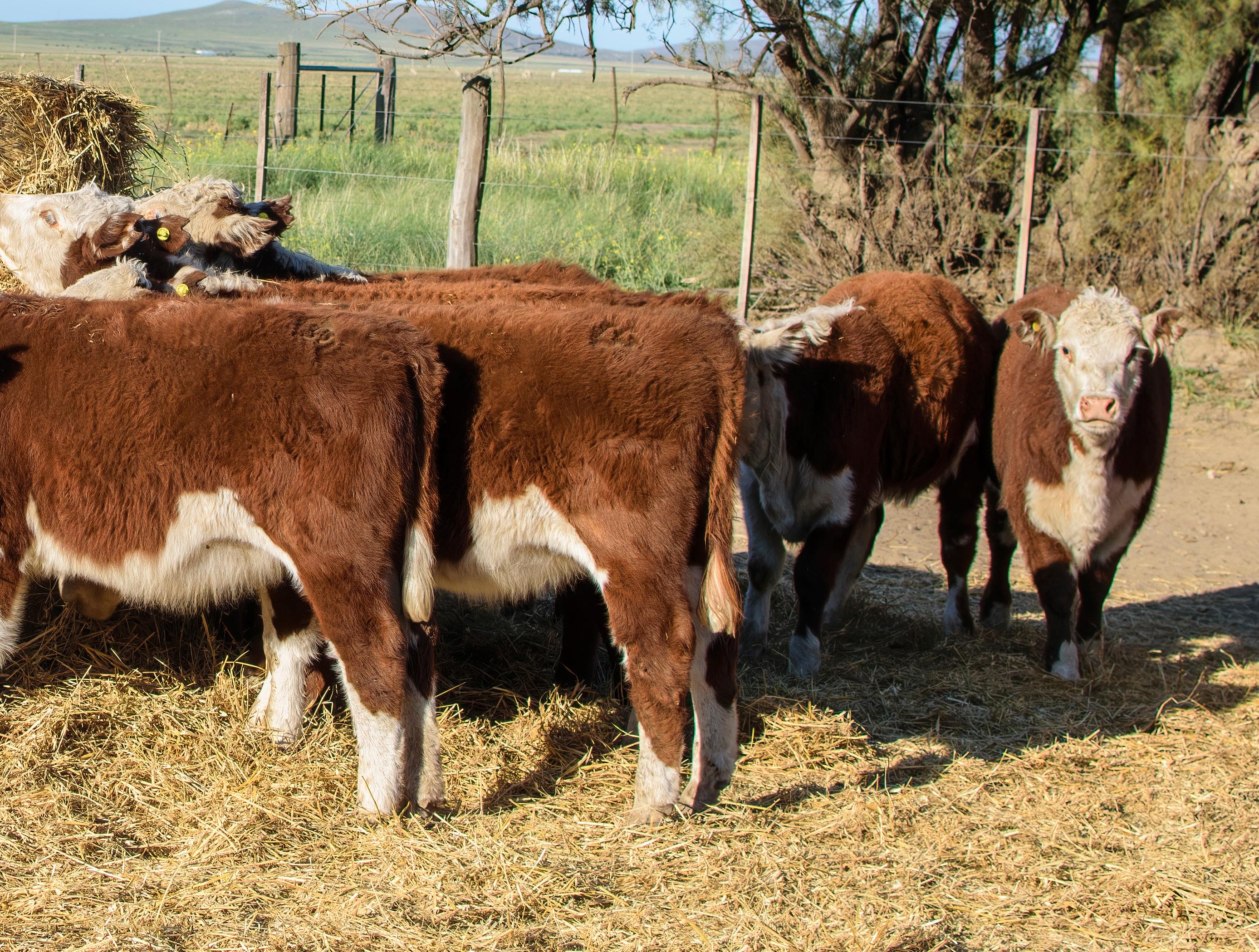
• Modify the premium offset language to allow an insured the choice to receive indemnities without a reduction to offset premium on any endorsements that have not yet ended.
• Require proof of ownership before
payment is issued for a loss.
• Clarify that livestock must be marketable by the end of the policy.
• Require insurance companies to pay claims within 30 days. Previously, insurance companies had 60 days to pay indemnities following the receipt of the claim form.
• Cancellation during a crop year to apply to another LRP policy with a different insurance provider within the same crop year is no longer allowed.
• Payment for the policy has been moved from the start of the policy to the end of the policy.
This article is for informational purposes only. The information is not all-inclusive and is intended as general guidelines. For additional information, please refer to the Risk Management Agency website or a livestock insurance agent.

Zach Johnson is all about educating consumers.
Known as “The Millennial Farmer,” to his 900,000 followers on social media, Johnson spoke about his journey from young farmer to ag star at the Evolution Ag Summit, hosted by North Dakota Farmers Union on Feb. 21 in Jamestown.

The summit was co-titled, “The Carbon Conundrum” for its focus on low-carbon farming practices that could benefit farmers and ranchers now and in the future.
Johnson shared his efforts to educate consumers through social media, pointing out how much different today’s environment is from 100 years ago.
“At that time, about 40% of Americans were
actually farmers,” he said. “And even if you weren’t a farmer, you certainly knew farmers and you understood a little bit about farming and what it brings to the country and the value of it.”
Today, farmers make up less than 1% of the nation’s population, and Johnson said negative information on the internet has led to a disconnect between producers and consumers. He cited his personal experiences in this area that led to the formation of his social media channels.
“It was a light bulb moment,” he said. “I wanted to be transparent about what we’re doing. So when we plant GMO (crops), I talk about it. I tell people why we’re using those seeds. And I talk about why we install drain tile, and how it improves our holding capacity in our soil and how the nutrients stay more stable and
how we’re not just draining wetlands.”
Johnson also spoke to generational differences including that of his namesake and some of the criticisms they hear.
“When I started my channel, millennial was a huge buzzword, and for the most part, it was negative,” Johnson said. “There are a lot of hard-working millennials that take pride in what they do. It’s like every generation. Just because some of us do things a little bit differently doesn’t mean that we’re doing it wrong.”
Johnson closed by encouraging all producers to reach out to the public in some fashion.
“If you can, think of a way to be a positive voice for this industry,” he said. “People want to hear from us. What we do is trendy. That doesn’t mean you have to start a YouTube channel or a Facebook page. Maybe it means you give the kindergarten class a tour of your farm, or you let them come in and feed a calf. Whatever you can think of. We have a better opportunity than ever right now.”
Dr. David Ripplinger, a bioeconomist for North Dakota State University, started the summit by giving a rundown of what corporations are doing to lower their carbon footprint and how that could benefit America’s producers.
The Low Carbon Fuel Standard (LCFS) is a rule originally introduced in California in 2007 that continues to be adopted by other states. He said the LCFS will require a steady increase in the amount of biodiesel and renewable diesel. Biodiesel is a blend of feedstocks and petroleum diesel similar to ethanol, while renewable diesel is made purely
from feedstocks such as soybean and canola oil. As more states adopt the LCFS, prices for commodities like soybean and canola will remain strong, Ripplinger said.
Ripplinger outlined how investment companies now use Environmental and Social Governance (ESG) reporting when choosing to invest in projects. Companies that consider environmental and social factors are more likely to receive funding, as part of a bigger effort to improve corporate responsibility.
That plays into the carbon offset market, where producers could benefit, Ripplinger said. Corporations like Disney, Apple and Microsoft will be looking to offset their carbon footprint by paying producers to undertake practices such as no-till, cover crops and manure management.
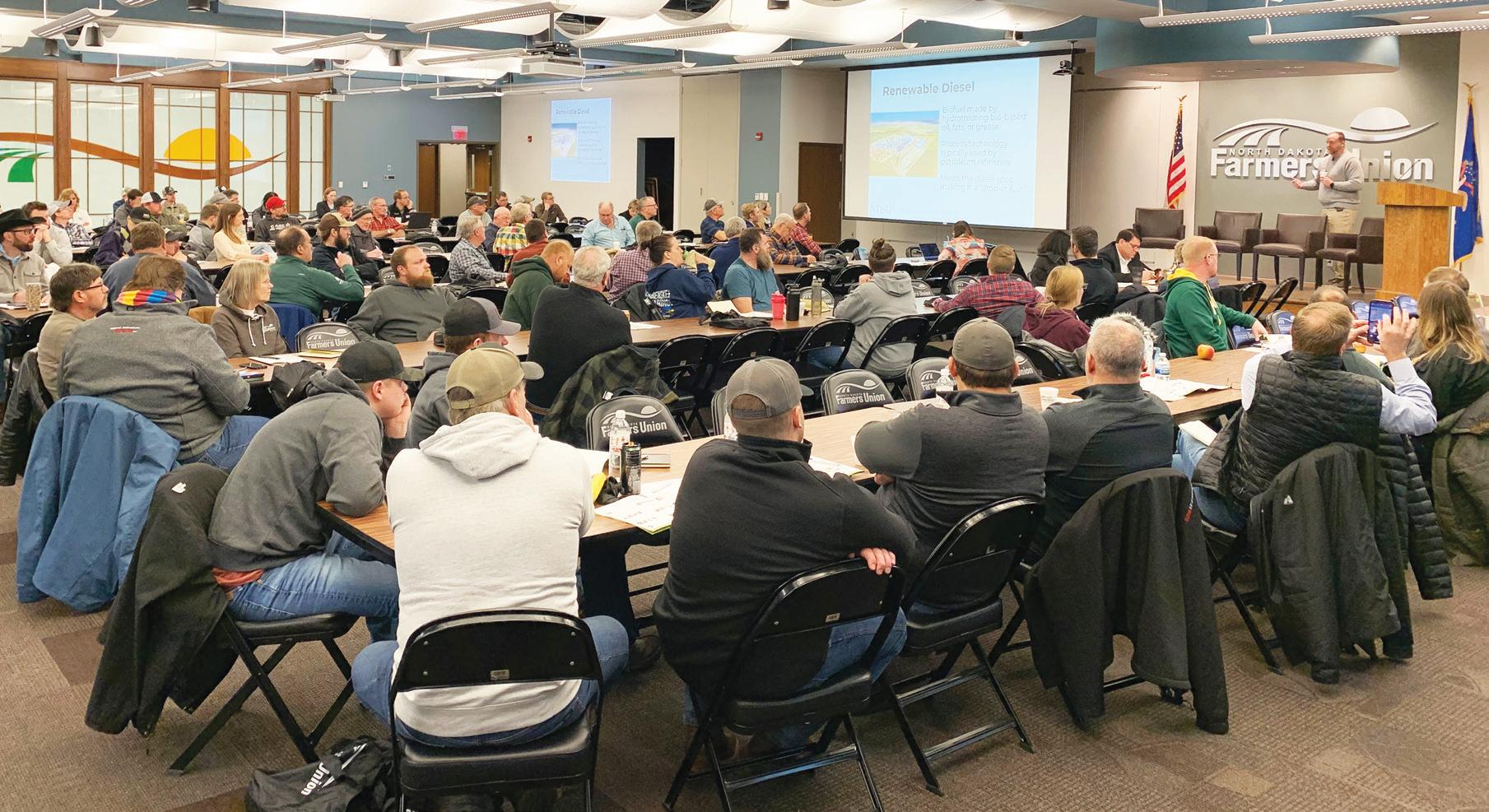
“This isn’t going away,” he said. “We had some activity on this 15 years ago, and it went away. This time, it’s much stronger and much more widespread.”
Bushel CEO Jake Joraanstad moderated a panel on sustainability commitments and supply chains with Kevin Hall of CHS, Colin Beal of Low Carbon Beef, LLC, and Nikki Zahradka of Anheuser-Busch.
Zahradka, whose position is U.S. director of agronomy, said Anheuser-Busch set sustainability goals five years ago for year 2025 that it hopes to meet.
“It’s really around water stewardship,” she said. “Making sure all of our facilities are working on water efficiency and reducing water usage. We also have a goal of 25%
less emissions throughout our value chain. And we have our Smart Agriculture goal, and that is to have 100% of our growers to be skilled in growing efficiently, effectively and economically. This is important to us. We want to be net zero (on carbon).”
With more companies looking to reduce emissions from their supply chains, Beal founded a company that certifies cattle raised with low-carbon practices. Ranchers willing to undertake these practices receive a premium for the beef.
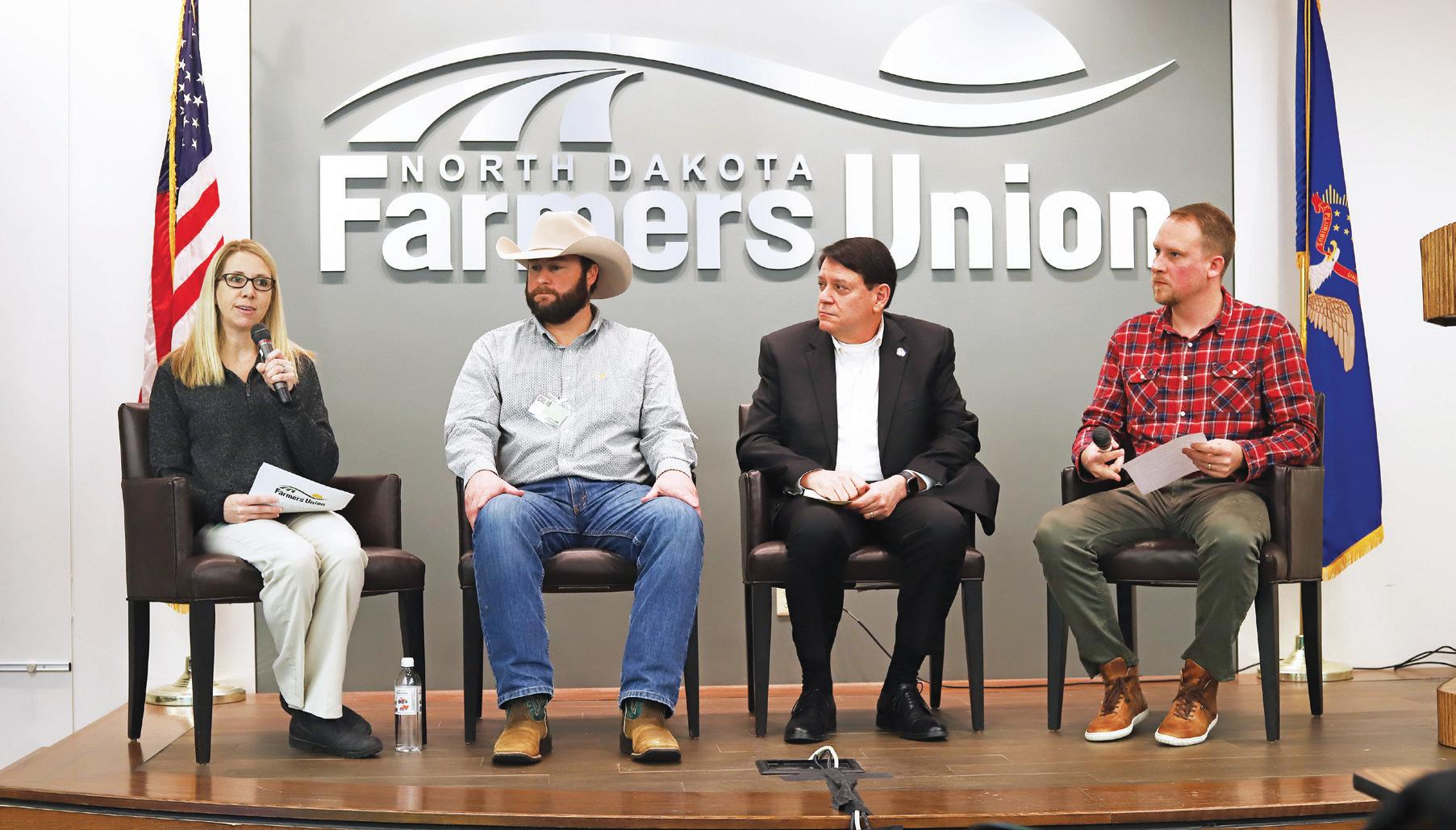
“Companies like Tyson are looking for this, so that’s what we’re trying to provide,” he said. “When I started this, there were a lot of articles about how cattle were ruining the world. I had colleagues that stopped eating beef because of environmental impacts. So for me, it was about adding value for producers who are able to demonstrate their commitment to sustainability and also provide consumers with more confidence in what they’re purchasing.”
Hall, who is vice president of supply chain and continuous improvement for CHS, said the nation’s largest cooperative is committed to sustainability, coming out with its first sustainability report last year. He added that their goal is to make sure co-op members have a seat at the table during these discussions.
“We want to make sure that we have a voice, and we’re part of the conversation,” he said, “and that we’re representing our members whenever things are moving in the direction that will change how we do business. And where we do business. And we’re committed to making sure that it makes economic sense.”
Ripplinger led a discussion on renewable energy with Kent Engelbrecht of ADM and Adam Dunlop of Midwest Ag Energy, who both said carbon sequestration is part of their operations.
“Carbon and carbon intensity is a fundamental element of who we are and what we’re doing,” Dunlop said.
Engelbrecht said ADM, which is completing a soybean crushing plant in Spiritwood, contributes soybean oil to renewable diesel. He emphasized that biodiesel is still a major player in the renewables market and that will continue to be the case for some time, especially while the infrastructure for renewable diesel steadily comes online.
“Biodiesel is here right now,” he said. “It’s been part of our past, and it’ll be part of our future.”
Dunlop said areas of the private sector are making the leap toward sustainable fuel without government mandates or an LCFS.
“There is no sustainable aviation fuel mandate in North America,” he said. “This has been driven by the big air transport companies wanting to be proactive and put themselves in a (good) position. And that’s why you’re seeing a strong pull on the fats, oils and greases to potentially go to sustainable aviation fuel."
Dr. Alejandro Plastina of Iowa State Extension shared the latest numbers from U.S. greenhouse emissions, noting emissions
from agriculture largely come from nitrogen fertilizer and methane from animal livestock. He dispelled the idea that carbon dioxide from farm equipment is a problem, noting that those emissions are relatively small in comparison.
He encouraged farmers to consider cover crops, planting trees for windbreaks, reduction of nitrogen fertilizer and the use of more manure.
“These are technologies we have available right now to reduce greenhouse gas emissions,” he said. “And investors have pledged trillions in funding to reduce carbon emissions.”
To cap the event, Agweek Editor Jenny Schlecht moderated a panel on conservation with Martin Barbre of the Rural Investment to Protect our Environment (RIPE), Dana AshfordKornburger of the NRCS and Brad Justice of Indigo.
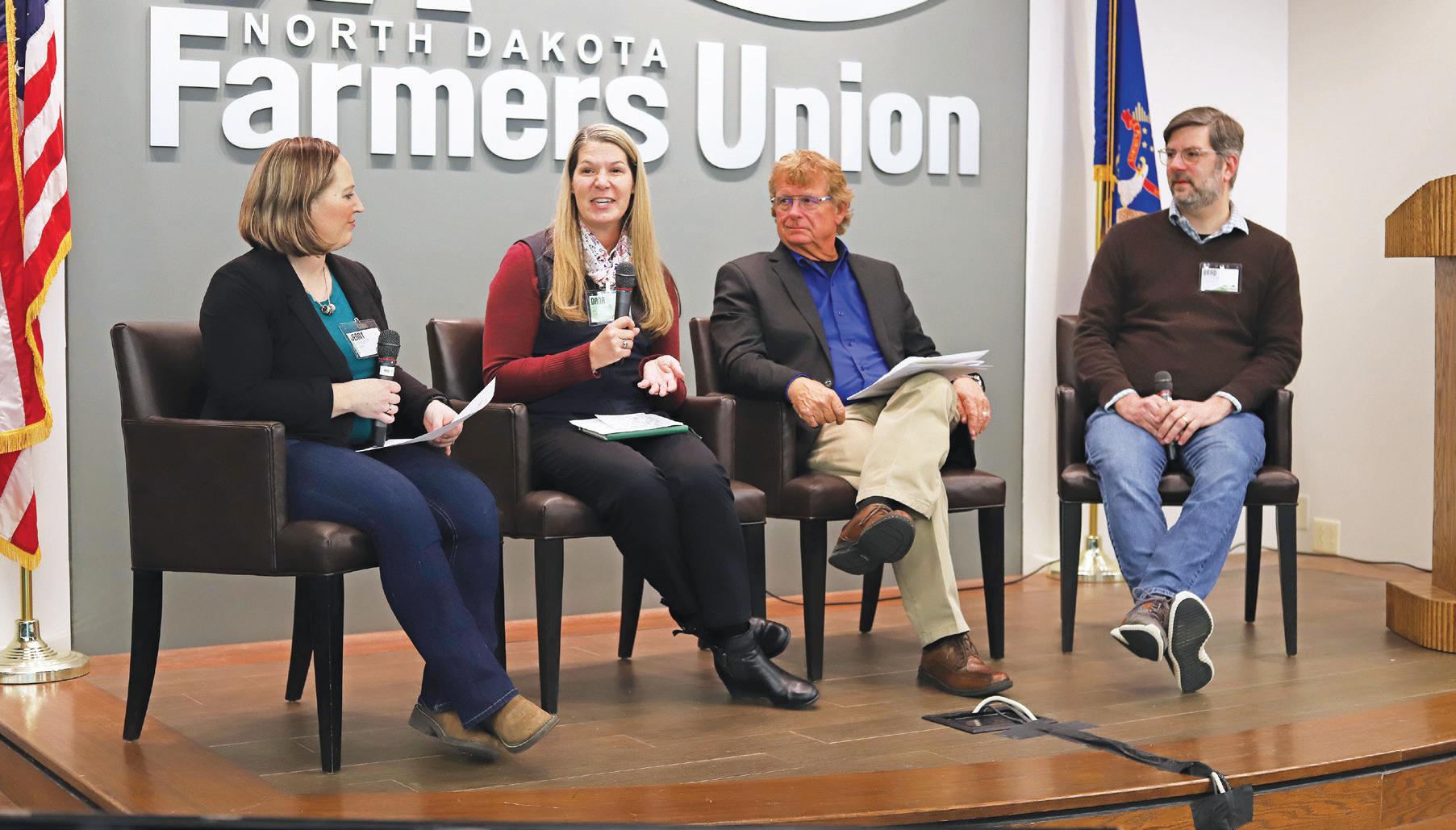
Ashford-Kornburger said the Inflation Reduction Act features additional funding for producers to take advantage of programs.
“We’re excited about the possibility of increasing our mitigation within the climate space,” she said.
Barbre and Justice both said they want to go the extra mile and help producers take advantage of low-carbon farming practices.
Justice said data compilation is helping in tracking certain areas like soil health, pointing out that tech companies are using satellites to track soils.
“They can tell you where you’ve driven through your field, and they’re trying to
tune it so they can tell you how much you weighed when you started and how much you weighed when you ended, so they know your application,” he said. “Get your data organized. Get it together.”
Barbre said farmers and ranchers are willing to implement these practices, but that they should not have to eat all of the costs on their own.
“Biggest thing we hear is that after four or five years, they’re not gonna quit these (new) practices because they’re doing better than ever,” he said. “We know these programs provide value back to the farmer. It’s about covering the cost of implementation.”


Earlier this month, Founding Farmers brought back a coveted, limited-edition item to the retail shelves of area stores — bourbon barrel-aged maple syrup.

Originally available online for the holiday season and thanks to a partnership with Cornell University’s Maple Program, the syrup was a hot commodity and the ultimate Founding Farmers holiday gift.

This syrup is special. Why? It’s the journey and story behind this golden-brown delicacy that makes it irresistible and an exclusive musthave for pancakes, waffles and French toast.
The journey of the syrup started when we sent our previously used, empty Founding Spirits bourbon barrels from our distillery up north to Lake Placid, N.Y. The Cornell Maple Program then went to work filling them up with the finest maple syrup upstate New York has to offer.
Once full, Cornell let the syrup age in the barrels, infusing the essence of our bourbon for six months. This is where the magic happens. As the syrup sits in the barrels, it draws out flavor compounds stored in the oak walls. This means the flavor of the maple syrup in the
barrels is married with hints of caramel, vanilla, cinnamon, and Founding Spirits bourbon – all making for outstanding maple syrup.
To read more about our limited-edition syrup and our partnership with Cornell University’s Maple Program, read more at wearefoundingfarmers.com
• Don’t lift more than 50 pounds yourself
• Use your legs when lifting and do not bend forward
• Avoid twisting or turning when lifting
• Keep elbows and the load as close to your body as possible, and don’t lift above shoulder level
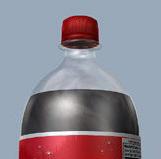

Did you know that farmers and ranchers receive only 14.3* cents of every food dollar that consumers spend? According to the USDA, off farm costs including marketing, processing, wholesaling, distribution and retailing account for more than 80 cents of every food dollar spent in the United States.

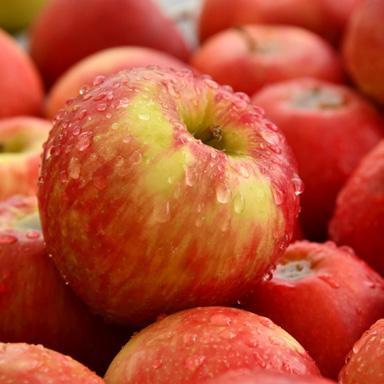
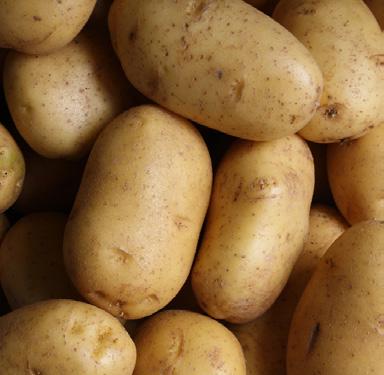
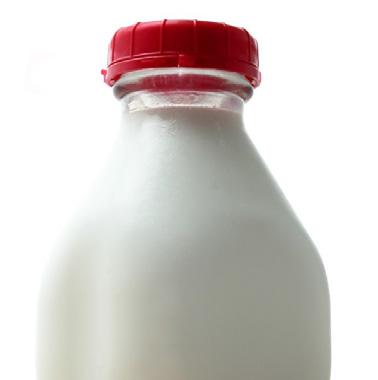

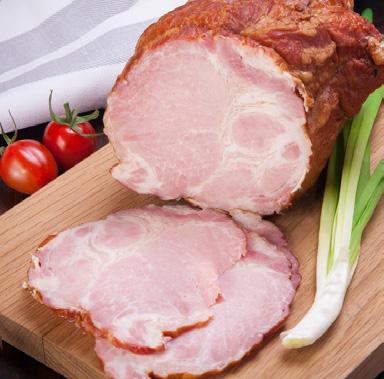
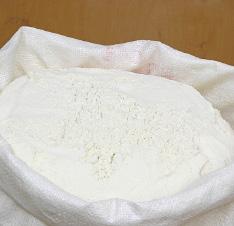





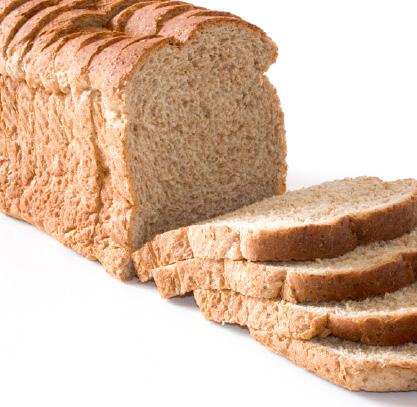

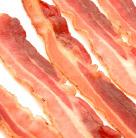
Senator John Thune (R-SD), joined by Senators Tester (D-MT), Cynthia Lummis (R-WY), Cory Booker (D-NJ), and Mike Rounds (R-SD) recently introduced the American Beef Labeling Act of 2023, as the push for mandatory country-of-origin labeling (COOL) continues into the 118th Congress.
The American Beef Labeling Act would reinstate mandatory COOL for beef sold in grocery stores by inserting “beef” and “ground beef” back into the existing 2002 law, which continues to require COOL for other foods, such as lamb, chicken, fish, nuts, fruits, and vegetables.
NFU supports conspicuous, mandatory, and uniform labeling for food products throughout the processing chain and calls for reauthorization and full implementation of COOL for agricultural, aquaculture, and wild-caught seafood products. Clear and accurate food labels are a valuable tool that helps consumers make informed decisions and allows farmers and ranchers to differentiate their products.
COOL would promote a fairer, more competitive market for America’s cattle farmers and ranchers and quality family-sustaining jobs for meat processing workers. American consumers deserve the right to choose, American cattle farmers and ranchers deserve the right to compete for the consumers’ favor in their domestic market, and meat processing workers deserve quality jobs.
As with Right to Repair legislation and the Cattle Price Discovery and Transparency Act, NFU will be a staunch advocate for passage of the American Beef Labeling Act.
On Feb. 2, U.S. Senators Chuck Grassley (R-Iowa), Jon Tester (D-MT), Ron Wyden (D-OR), and Deb Fischer (R-NE) introduced the Cattle Price Discovery and Transparency Act of 2023. The legislation aims to restore transparency and accountability in cattle markets by establishing regional cash minimums and equipping producers with greater access to market information.

NFU was proud to support the Cattle Price Discovery and Transparency Act in the last Congress and has endorsed this legislation in the 118th Congress. The Cattle Price Discovery and Transparency Act of 2023 has 22 original cosponsors.
A significant challenge facing the cattle industry is the declining volume of negotiated cash trades. In an industry that is supposed to be the purest form of capitalism and competition, rampant consolidation has left its mark in the beef industry, as just four large companies control 85% of the market.
In turn, packers have been using their market power to establish “alternative marketing arrangements,” such as formula pricing and forward contracts with feedlots and slaughters, versus the traditional method of negotiated and auctioned cash markets that accurately reflect supply and demand. The latter inherently establishes robust price discovery at multiple points throughout the supply chain, providing ranchers with accurate information for the “going rate” of cattle.
With depressed demand for negotiated cash transfers, the prices cattle ranchers receive have plummeted while large corporations are raking in record profits, all while consumers are paying record prices at the grocery store.
The Cattle Price Discovery and Transparency Act of 2023 makes important reforms, including:
• Establishing mandatory minimum purchase volumes for packers through “approved pricing mechanisms” based on five to seven geographic regions to be determined by the U.S. Department of Agriculture.
• Bringing more transparency by requiring reporting of cattle weights and slaughter deliveries two weeks in advance.
• Clarifying and implementing a cattle contract library.
• Increasing penalties for violations by packers.
• Requiring livestock mandatory reporting data be consistently available.
The Cattle Price Discovery and Transparency Act takes a big step toward ensuring fairness and transparency in cattle markets – a top
Fairness for Farmers priority. NFU is committed to advocating for passage of this legislation in the 118th Congress.
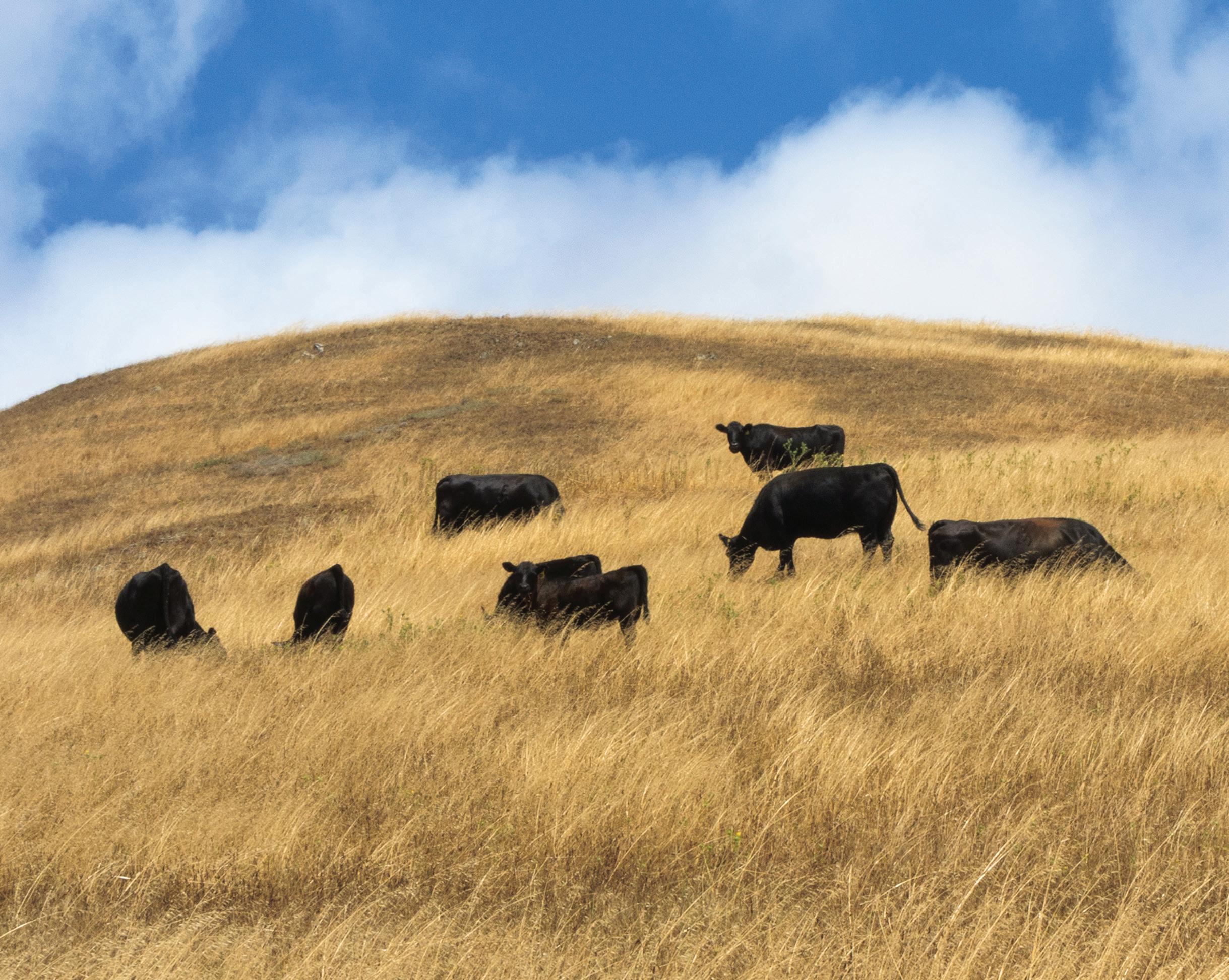
In early January, news broke of an agreement between John Deere, one of the largest manufacturers of farm equipment, and the American Farm Bureau Federation (AFBF). The agreement, formally a Memorandum of Understanding (MOU), asserts John Deere will provide farmers and independent repair firms with access to John Deere’s repair tools, parts and documentation.
Right to Repair is a major issue across many industries but has a profound impact on farmers and ranchers. With only three companies dominating the market for large farm machinery, farmers have few choices in the marketplace. The major equipment manufacturers, including John Deere, have long refused to make critical repair tools fully available to farmers and independent mechanics, leaving them no choice but to take broken equipment to a licensed dealership. These restrictions, paired with dealership consolidation, have led to inflated service prices and lengthy delays during tight planting
and harvest windows that can cost farmers their crop.
While the MOU states farmers will be able to access the same repair materials as John Deere’s technicians, it does not provide any guarantee. The agreement is not a contract with legally binding provisions, which means there are no means of enforcement that can hold either side to the terms. Additionally, a troubling provision within the MOU is a commitment to John Deere that AFBF refrain from supporting Right to Repair legislation.
The AFBF-John Deere MOU presents itself as a voluntary commitment and private sector resolution to achieve the goals of Right to Repair, but it falls far short of real repair protections. Legislation or regulation, either at the federal or state level, would apply to all equipment manufacturers and provide enforcement mechanisms – this is notably absent from the AFBF-John Deere MOU.
Farmers and ranchers need the legal right to obtain and access the documentation, parts and software tools to fix their own equipment. NFU supports legislation that ensures the Right to Repair, and we will continue to advocate for Right to Repair legislation through the Fairness for Farmers campaign in the 118th Congress.
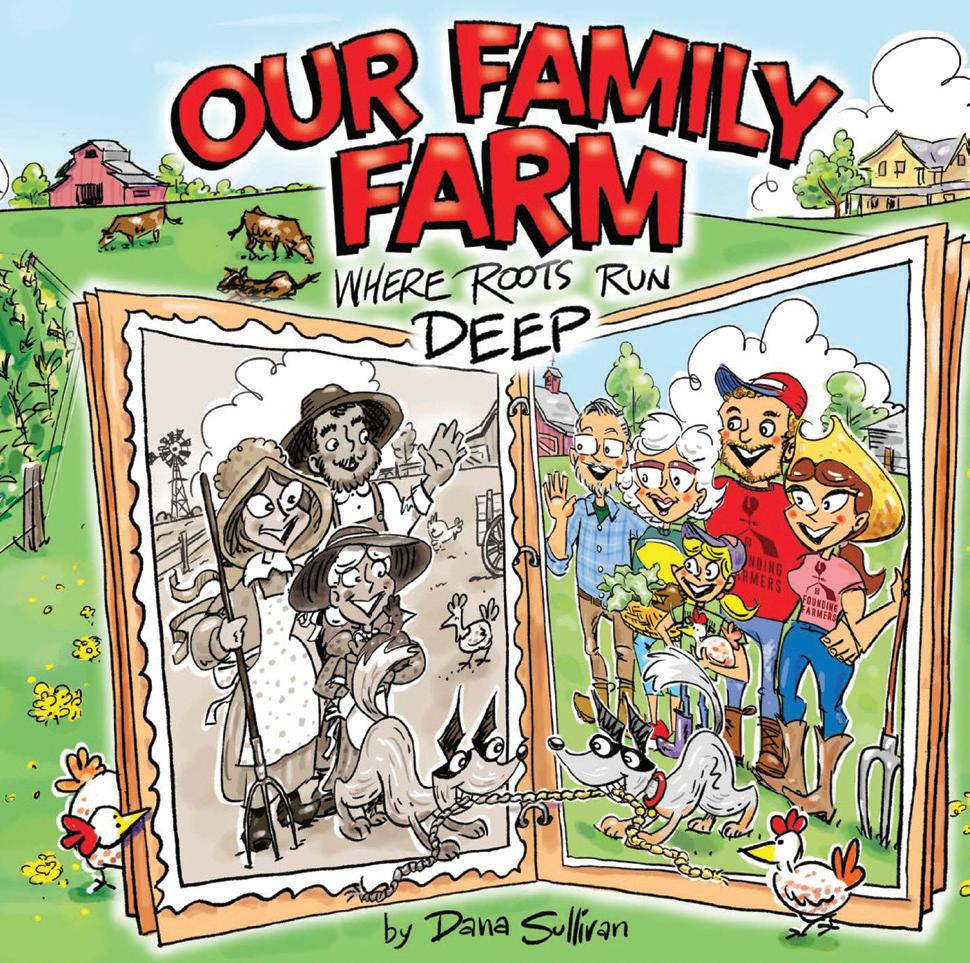
the Fourth children’s book from North Dakota Farmers Union
$16.95 plus tax
Dusty learns about generations of family and equipment on their farm, and the latest in soil technology. Find out how Dusty makes Gramps a new thingamajig for his tractor to save the day!

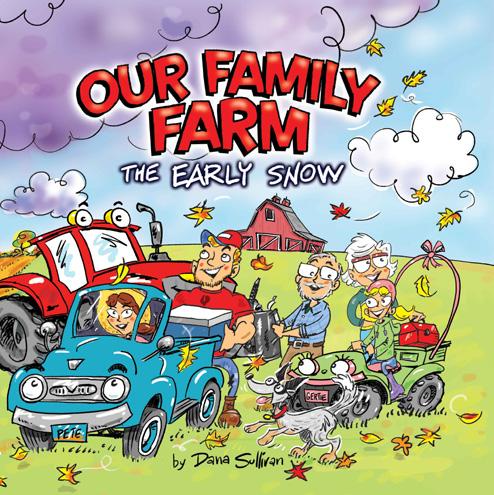


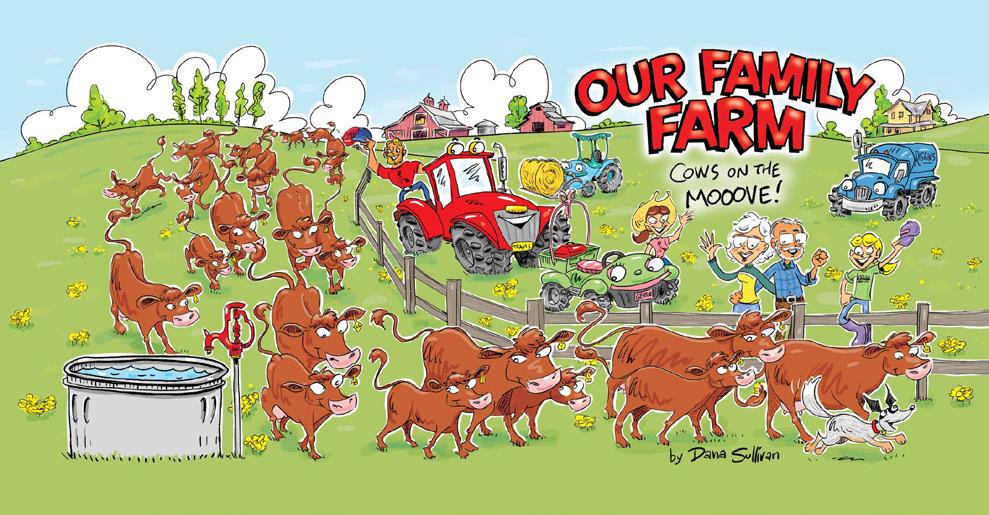
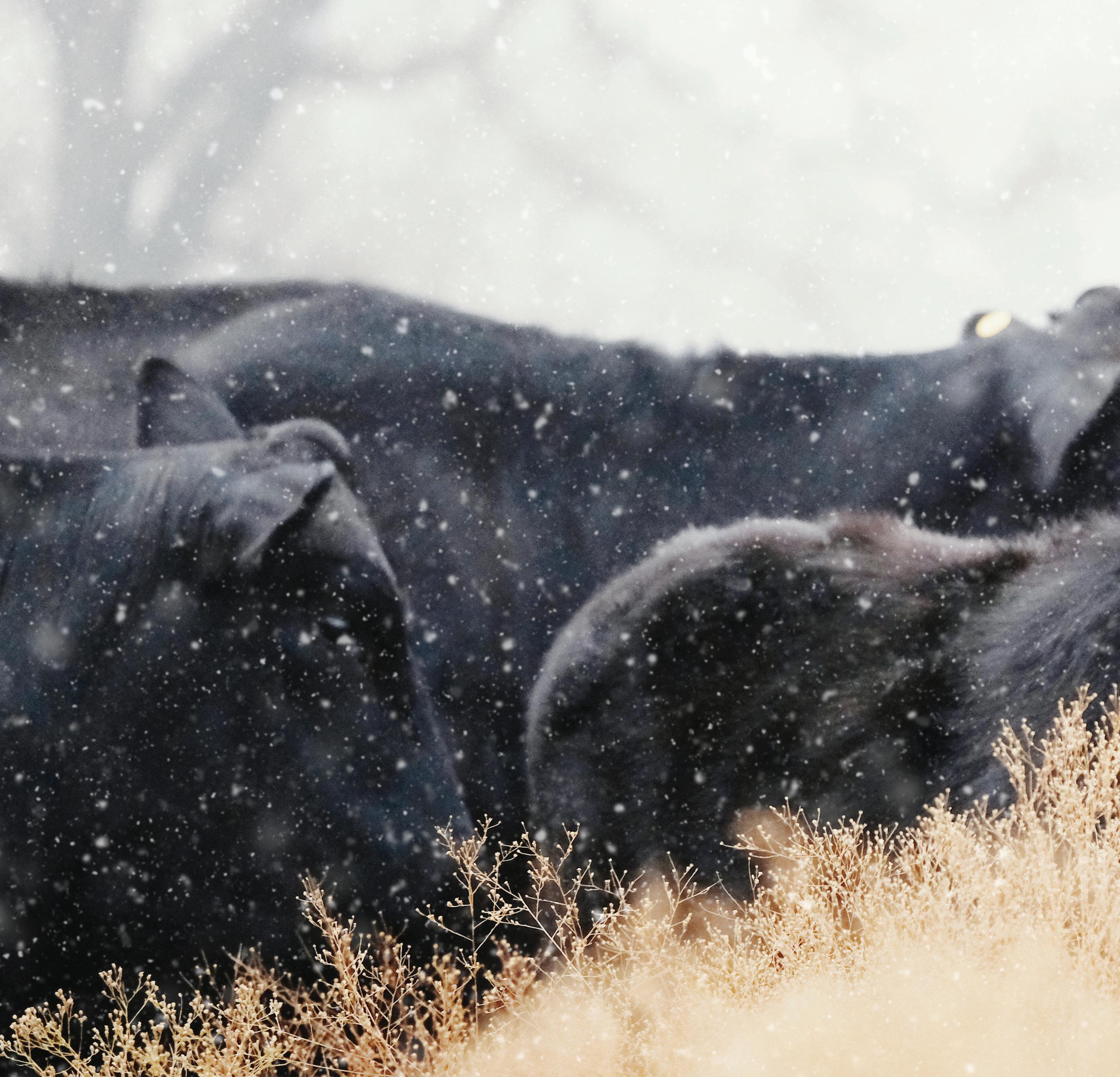
The winter of 2022-23 has already been challenging for ranchers. The amount of snow and ice on roads and farmyards has challenged management for feeding and caring for animals. With the ground not entirely frozen due to the insulation effect of early snows, many ranchers are set up for wet, muddy and unsanitary conditions for calving.
“Because of our unusual amount of snow, animal health is also a concern this winter,” said North Dakota State University Extension veterinarian Gerald Stokka. “For cattle operations that begin calving during this time, cows must have access to some type of confinement facility with the capability to provide bedding. Newborn calves will need space inside a bedded barn or shed, or cows with newborn calves will need to be moved to confined space facilities.”
Typically, confinement facilities should have room for the dams predicted to calve during the first two weeks of the calving season, as gestation periods vary widely, said Stokka. In confined spaces, it is important to separate
first-calf heifers from the mature cow herd. Calves born to first-calf heifers are considered to be at a higher risk of disease during the first three to six weeks of life. This is primarily due to the relatively lower quality of colostrum produced by first-calf heifers and potentially a lower absorption rate due to the risk of poor dam-to-calf bonding and greater calving stress. These factors combine to inhibit colostrum consumption, decrease absorption, increase the risk of failure of passive transfer, and increase the risk of disease, especially neonatal calf scours, and the chance of pathogen exposure to other calves. In addition, when working with higher-risk groups, it is important to remember that pathogens can be spread by human and mechanical (loader tractors) contact. In outdoor pens connected to confinement barns, cows should be provided a minimum of 250 to 500 square feet per head, and it is beneficial to the health of the cow and calf to bed these pens.
Stokka advised ranchers to design a system to reduce the risk of disease spread to the pregnant cow and newborn calf. A calving barn
can be used as a gateway to reduce exposure from winter weather. All cows observed to be close to calving in a 24-hour period should be moved into the calving barn. Pens can be constructed out of panels if working with first-calf heifers or mature cows, as these cows may need some assistance with establishing the cow-calf bond. The calving barn must be supplied with clean bedding midway and later into the calving season, as new bedding decreases the spread of pathogens to calves moving through the facility.
Depending on weather, herd size and barn size, the entire barn and all cows calving within the 24-hour period can be moved to sod or clean, dry ground with some type of wind breaks. Evaluate each calf for well-being prior to the move to outdoor space. If the ground is still covered with snow, the removal of snow, the addition of wind protection and the application of bedding can be sufficient for newborn calves, said Lisa Pederson, NDSU Extension livestock specialist.
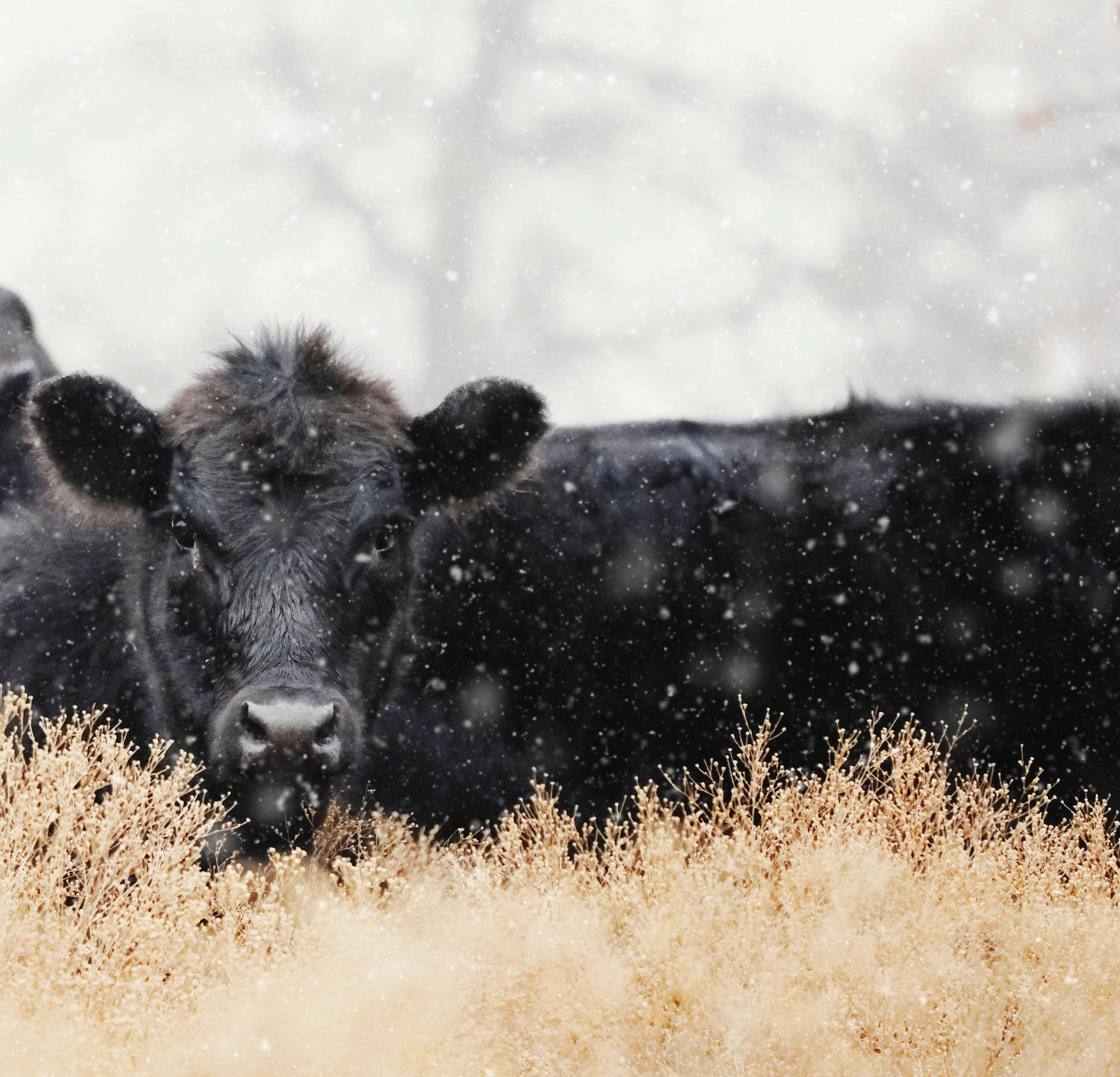
Newborn calves have a higher amount of bodyweight related to fluid volume. It is estimated that up to 75% of their body weight is fluid from blood, tissues and cellular spaces. This extra fluid volume does not protect them from dehydration when losses occur due to diarrhea. For example, a 100-pound calf that is 10% dehydrated due to fluid losses will require 10 pounds of fluid to replace the loss. This is 1.25 gallons, which does not include the amount required for maintenance. Mild dehydration can be detected visually in neonatal calves. A dehydration of 2% body weight is associated with slight sunken eyes,
dry mucous membranes, and a prolonged skin tent duration of three seconds. In severe cases, intravenous administration of fluids may be necessary. Reductions in cardiac output in dehydrated calves is associated with decreased blood flow and therefore cooler extremities such as ears, feet and legs.
Oral replacement products are important to have on hand, said Stokka. There are a number of products available, such as Entrolyte HE and Resorb. They are balanced, with the main electrolytes being sodium, chloride and potassium, as well as varying amounts of dextrose for energy. High energy electrolytes are especially important if the calf has lost weight or is going to be on electrolytes for an extended period of time. If the calf seems confused, dopey or wobbly, it may be due to metabolic acidosis due to loss of fluids. Adding sodium bicarbonate (baking soda) to oral fluids can help to correct this condition. Recommendations vary as to the amount of baking soda added to oral solutions, but 2 tablespoons of baking soda to 2 quarts of oral solutions would be appropriate.
According to Stokka, antibiotics are not needed to treat most cases of calf scours, as dehydration and electrolyte loss are the principle issues for the calf to overcome. In cases of calf scours, there often are multiple causative etiologic agents involved, including viruses such as rotavirus and coronavirus, protozoa such as cryptosporidium, and bacteria such as E.coli. Only in cases with suspected systemic infections or sepsis would the use of antibiotics provide a potential benefit.
Article courtesy of NDSU Ag Communications

Planning for the future can be a very frustrating process, especially in times of market volatility. Planning typically pays high dividends. For most farm and ranch managers, developing realistic commodity price expectations is one of the most difficult and complex tasks of the planning process.
To make the planning process easier, North Dakota State University Extension has released its 2023 short- and long-term agricultural planning price projections for North Dakota, said Ron Haugen, NDSU Extension farm economist.
The publication shows 2023 price projections for crops and livestock produced in the state and price estimates for future years. Price projections are given for the major crop commodities, including wheat, durum, oats, feed barley, malting barley, oil sunflowers, non-oil sunflowers, corn, soybeans, canola, flaxseed, winter wheat, dry beans, dry peas, lentils, alfalfa hay and mixed hay.

Price projections for livestock and livestock products include beef steers and heifers at various weights, cull cows, slaughter steers, slaughter hogs, slaughter ewes, slaughter lambs, feeder lambs and milk. The publication also provides historical prices as a reference.
"The estimated short-term planning prices should be used as a guide in setting price
expectations for 2023 production," Haugen said. "These planning prices can be used for preparing annual enterprise budgets and annual whole-farm cash flow projections. Cash flow projections are very critical with today's tight margins."
Haugen cautioned, "Short-term prices should not be used for planning capital purchases or expansion alternatives that would extend beyond the next production year."
Article courtesy of NDSU Ag Communications

Ads must be submitted through the online form at www.ndfu.org. Click “Classifieds” at the very bottom of ndfu.org and fill out the online form. Ads must be re-submitted each month. No exceptions! Deadline is the 15th of every month. Limit 75 words.
MEMBERSHIP DUES MUST BE CURRENT!
TIRES, 4 Michelin tires, 24k miles, #235155R20. Asking $100 for all four. 701-720-3400, Albert Reiter, Surrey.
PRESS DRILL, 1973 (approx.), 14 ft IHC Model 620, disc opener complete with hydraulic cylinder that is ready to go. $700. 701-6245729, Harley Saugstad, Minot.
BUILDING TO BE SALVAGED, 40x80 building with base in the ice, lot of good materials still salvageable. Call for details; 514 John Deere plow for sale. 701-763-6421, Duane Klostreich, Cleveland.
BALE FEEDERS, 2 large round feeders, made with grader blades. Very sturdy. 701-202-0400, Ron Monzelowsky, Bismarck.
1940s IH TRACTORS, complete series that includes Farmall A, B, C, H and M; McCormick W4, W6, W9. 701-483-9645, Arnold Olheiser, Dickinson.
ANVILS 100/120 POUNDERS, nice post vise, nice metal phone booth, Coke upright pop machine and a 7UP slider machine, and one Pennzoil cast iron sign base. 701-220-5746, Val Ganje, Bismarck.
TRAILER, Triggs gooseneck stock trailer, 16 ft, heavy axles, 8 hole wheels, 16 inch tires, new paint, fenders, decals and led lights. $3,500; Car caddy $650; Rear fenders for 42-47 Ford pickup. 701-391-1852, Marc Sundquist, Baldwin.
VERSATILE 700 TRACTOR. Motor is good with recently purchased new starter. Good lugs on 18.4 x 38 tires. $1,500; D John Deere with gas starting motor. Make offer. 701-337-6103, Ronald Krebsbach, Garrison.
FUEL TANK, 500 gallons. Add on tractor 3 pt hitch. 701-974-3644, Loren Myran, Taylor.
1978 GMC SIERRA 427, 2 ton truck. New radiator. Engine runs but needs work. 5 speed $750; Wisconsin 2 cylinder motor $25; 8 ton wagon hoist $20; Char Lynn PTO hydraulic pump $10; 42 foot JD 1060 air disc drill; 787 cart, 7 inch spacing $2000; New air fan for JD 787 cart or Flexicoil. Make offer. 701-983-4445, Leona Flemmer, Golden Valley.
COMBINES, old IHC combines #62, #123sp; Chevrolet stubnose trucks 1930 -1960; IHC steel wheel tractors; IHC pickup 1945-1955; Newer 4-cycle boat motor; Aermotor windmill fan and or head. Rear tractor tires, 12x38. 701974-3644, Loren Myran, Taylor.
JD 1620 COULTER (chisel plow converted to vertical tillage tool), 40’, new hoses, new lift cylinder, good tires and lots of new bearings, Blades measure 17”. $15,000 OBO. 701-3215711, John Kempf, Ashley.
CATERPILLAR SALVAGE, D-6 Caterpillar with dozer, $3000; Tox-O-Wik grain dryer $500; 1976 Mercedes Benz to be restored (300 diesel), $2,500. 701-895-3594/701-373-5480, Donald Jorissen, Valley City.
2425 BUHLER VERSATILE TRACTOR. 3600 hours, EZ Steer 750 with IQ. 425 H N Cummins, 50 G.P.M. Hydraulic, return line. $113,000. 701228-6571, Gregory Sletto, Willow City.
CONCORD 3212 AIR SEEDER w/ 2000 cart with cultivator shovels, but also has NH3 set up with hydraulic fan and hydraulic winch. Real good shape. Used 2 years ago. 701-570-3983, Floyd Miller, Williston.
350 NEW HOLLAND GRINDER MIXER with drag auger $3400; New Holland 354 grinder mixer $1900; NH 456 MOWER $3600; Vermeer 256 bale processor $6500. 701-400-5742, Gerald Miller, Mandan.
CULTIVATOR, Koehn 8-row Danish tine 3 pt. hitch cultivator, 30” row spacing adjustable, depth wheels, stand, sway discs on ends. $250 OBO. 701-659-8238, Glen Nagel, Jamestown.
HP CAMPBELL HAUSFELD electric wire welder, new in the box. Marquette electric 220 arc farm welder, helmet, cables, and rods. Propane weed wand, tank. Buddy Flex - Mr. Heater fish house propane heater, 8,000-11,000 BTU, new in the box; Craftsman bench vise mounted on a plank. Belt driven bench grinder mounted on a plank. Most items new to excellent condition. 701-838-5014. Donald Eliason, Minot.
15-30 MCCORMICK TRACTOR, 1 new tire LT245-75R-Load Range E; 2 cream separators; 4-wheel steel running gear; Covered wagon running gear; 12’ Kirschman drill; Horse potato cultivator; 4 Btm. Pony & Packer, saddle and 2 bridles, Email: larryn@westriv.com. 701-5488020, Larry Nagel, Shields.
WANTED
SILVER KING AND HUBER, for my tractor collection. 701-320-7391, Howard Stemen, Dickey.
TRACTORS. IH 706 on up., JD 4520, 4620, 5010, 5020, 6030, others. MM 950 on up; Oliver 1964 on up; AC 200, 210, 220, D-21, others. Most tractors 1965 on up running or not. 701-628-2130, Stanley, Jerry Lumley.
CATERPILLAR, D2 or D4; International TD6 crawler. 701-641-1173, Scott Grote, Battleview.
HEADER/CHOPPER, 4 row 30” spacing corn header and a straw chopper with double cutting blades for JD 9600 combine. 701-570-3983, Floyd Miller, Williston.
IH PRESS DRILLS, ok if need work; Grass seeders for IH drills; Sickle mowers; 28 ft. tillage disks. 701-400-5742, Gerald Miller, Mandan.
ICE AUGER, brand new, Ion Alpha Gen 3 8” Ice Auger. $500 retail value. Will sell for $375! 701-840-0553, Pat Johnson, Valley City.
MEN’S BOWLING BALL, type: Black Beauty; Women’s Bowling ball, Brunswick, blue; Antique Parlor lamp mint, fine condition.; Swivel stool; Single mattress; Men’s size 42 long outside shell corduroy coat; Antique folding fireplace screen all brass; 3 piece; coffee table, set with end tables; Men’s winter coat, 100 percent New Zealand lambskin shell; Both coats excellent condition. 701-263-1206, Lathan Romsos, Bottineau.
SUBARU SAMBAR KEI, truck, must have 4-cylinder engine, 4x4, 5-speed. AC preferred. 701-818-1568, Dustin Hammond, Napoleon.
OLD STUFF, out of service ND Highway Patrol signs, Indian Head road signs, or ND shield shaped US highway signs. Signs advertising gas and oil stuff, or pop stuff, or tractor machinery stuff. ND license plates, ND picked arrowheads, ND small town metal tokens. Advertising items like crocks, calendars, thermometers, lighters, tape measures, mechanical pencils. I even buy old traps and gas pumps. 701-220-5746, Val Ganje, Bismarck.
HAMMER HEADS, authentic Native American hammer (maul) heads. Will pay $70 to $100, depending upon condition. 952-334-4742/ pklegler@gmail.com, Paul Legler, Lakeville, Minn.
PRAIRIE DOG HUNTERS to hunt on my land. Make reservations now. Email: larryn@westriv. com. 701-548-8020, Larry Nagel, Shields. FOR SALE
NEW HAY, 5x6, Alfalfa/Brome/Grass mix. Excellent quality. $50/bale. Buy 10 bales get one free; Complete Black Angus commercial herd dispersal. 48 head to start calving 1st week of April. 701-400-2683, Doug Neuharth, Hurdsfield.

Foster County Farmers Union Vice President Darwin Topp delivered books to Midkota Elementary and his granddaughter Millie Dreher, at left, was there to receive the donation. Millie’s second-grade classmate Luke Ramsey is at right. FCFU also donated to Carrington Elementary.



Griggs County Farmers Union director Bill Rahlf stands next to Griggs County Public Library Director Lexi Broschat. GCFU donated four books to the library.
Sioux County Farmers Union held a Snowflake Jamboree in the Selfridge High School gym on Jan. 28. The jamboree served as a winter carnival inviting children from the community, as well as neighboring communities, to play games and participate in craft activities.

 Towner County Farmers Union donated books to North Star Public School, Cando Public Library, and the local daycare. From left is TCFU President Myron Jacobsen, Lavonne Haugen, Jessica Gunderson, director Adam Held and Farmers Union Insurance agent Chad Harrington.
NDFU President Mark Watne speaks to members in Kidder County on February 10, opening the floor to any questions or comments during Kidder County Farmers Union’s Night of Knowledge held at the Pettibone Community Center.
Towner County Farmers Union donated books to North Star Public School, Cando Public Library, and the local daycare. From left is TCFU President Myron Jacobsen, Lavonne Haugen, Jessica Gunderson, director Adam Held and Farmers Union Insurance agent Chad Harrington.
NDFU President Mark Watne speaks to members in Kidder County on February 10, opening the floor to any questions or comments during Kidder County Farmers Union’s Night of Knowledge held at the Pettibone Community Center.

